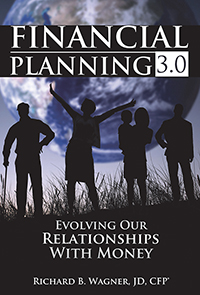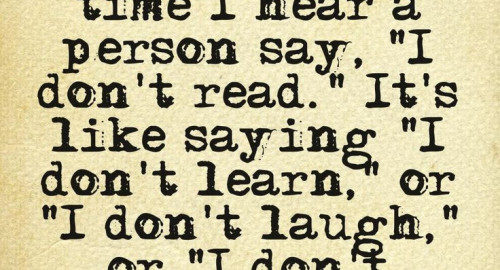“I can never be all the people I want and live all the lives I want.” ― Sylvia Plath, The Unabridged Journals of Sylvia Plath
This is one of the strongest reasons to read books and learn new things and fill your life with more satisfying experiences about all the things that interest you and make a difference to life. That’s why, for the benefit of our readers (and ourselves), we will be reviewing one book every month. This book will relate to personal finance. And the idea of doing this is to give all of us better perspectives on the vital subject of money management.
We recently read “Financial Planning 3.0—Evolving Our Relationships with Money” by Richard B. Wagner. Wagner was one of the genuine original thinkers of the financial planning profession. In over 30 years, Wagner, George Kinder, Roy Diliberto, and a small group of other advisers conceived the financial life planning movement and expanded the frontiers of an emerging profession. During that period, financial life planning was transformed from an esoteric aspect of what advisors did into something more people could understand better and do more with to improve their lives.
This book is an engrossing, illuminating, and satisfying instalment in this journey. It talks about How Financial Planning profession has evolved over the years and how it’s the time for advising, planning for investment by considering a life-centred approach to it. What we like most about the book and its relevance to you is the detailed chapters on how money has evolved in society.

The author says that we all are in agreement for the value of the money whenever we exchange goods and services for money, that’s how money got its value. Every aspect of our life gets encompassed with money. From morning to night we take many decisions that have to do with money. Having more money or no money impacts our lives deeply. Our relationship with money decides the pain or pleasure we derive from life. Dealing with money is one of the most essential skills in the 21st century.
Some of the thing the author encourages us to think deeply about and seek out expertise in are as follows.
- Money is the most powerful and pervasive secular force on the planet
- Money skills do not come naturally to human beings. We eat, drink, sleep and process without thought. Not so with Money.
- Compassion is appropriate for those not capable of meeting money’s demands.
- Money doesn’t equal wealth. Wealth is a state of being, sufficiency of mind. “Money”, is just money.
- Money’s nature with respect to individuals is not clearly understood.
- It is not in the nature of money to ever provide reliable security for individuals or social units.
- Money is the key to the most important decisions of an individual’s life.
- Money is humanity’s most profound creation. Used appropriately, it garners unused energies to address unmet needs. It unlocks human wealth building capacities unlike any other force.
To Summarise in the words of Dr. Dev Yaske,”Money is weird stuff. We cannot avoid it but it terrifies and mystifies most of us. Most folks need help relating to it–and lots of it. Most especially, they need their own financial planner, someone who thoroughly understands money, what it is and how it works”.

